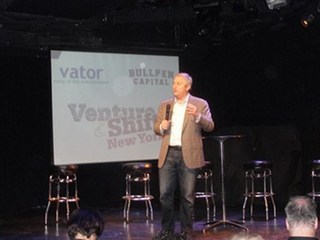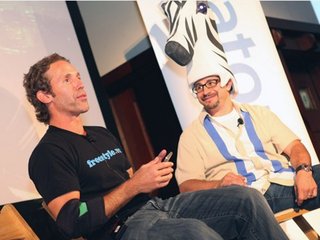Duncan Davidson talks COVID response: what we we did right and wrong, and what needs to happen next
Davidson will be a part of Vator's Healthcare in Politics salon on October 7
Read more...I've been through the Internet bubble and know what a stomach-turner that time was. In late 1999, you could almost sense it was coming too, given the investment-banking-pumping machine that kept spitting IPOs out as though they were on some sort of assembly line, and the day-trading, mom-and-pop lemmings who grabbed them as quickly as they came off because, well, everyone else was doing it.
This time around, it does seem the angel investors of today are the day traders of yesteryear. They flock to start-ups if their friends are flocking to them without really knowing what they're getting into. Is this a problem?
I sense it can be at some point, when this private-company asset class gets larger, which I predict it will.
But if you ask David Hornik, a venture capitalist at August Capital, there's nothing to fret. "A number of these companies are not going to succeed," he said, in our interview (the second in our two-part interview). "People have to be realistic about what's going to happen," he said. "The reality is that most companies don't succeed... You have to go in with expectations [like that]... I don't think there is a big fallout coming."
Indeed, private company investors have to approach investing as though they're approaching a poker game. They better not be spending their kid's college tuition and they better accept that they may or may not get their money back.
Hornik certainly has quite a calm take on the venture landscape relative to Mark Suster who predicts a bursting of the bubble sometime this year or 2013.
As for the inflow of funds into the later stages valuing companies at $1 billion, Hornik thinks it's a "little crazy" though he wouldn't rule out August getting involved in a deal or two that happens to warrant that type of craziness. That said, one has to look at how many businesses that have grown into billion-dollar businesses, he said. It just doesn't happen often.
On the flip side, many companies are going public at multi-billion-dollar valuations. Indeed, he expects Facebook to go out at closer to $100 billion in valuation vs. $50 billion - the low-to-high range it's estimated to trade at.
"This either creates a whole new opportunity or creates incredibly stupid behavior."

Founder and CEO of Vator, a media and research firm for entrepreneurs and investors; Managing Director of Vator Health Fund; Co-Founder of Invent Health; Author and award-winning journalist.
All author postsDavidson will be a part of Vator's Healthcare in Politics salon on October 7
Read more...Artificial or not, intelligence is already woven into every part of life
Read more...Entrepreneurship is about finding solutions to challenges in real time
Read more...
Joined Vator on


